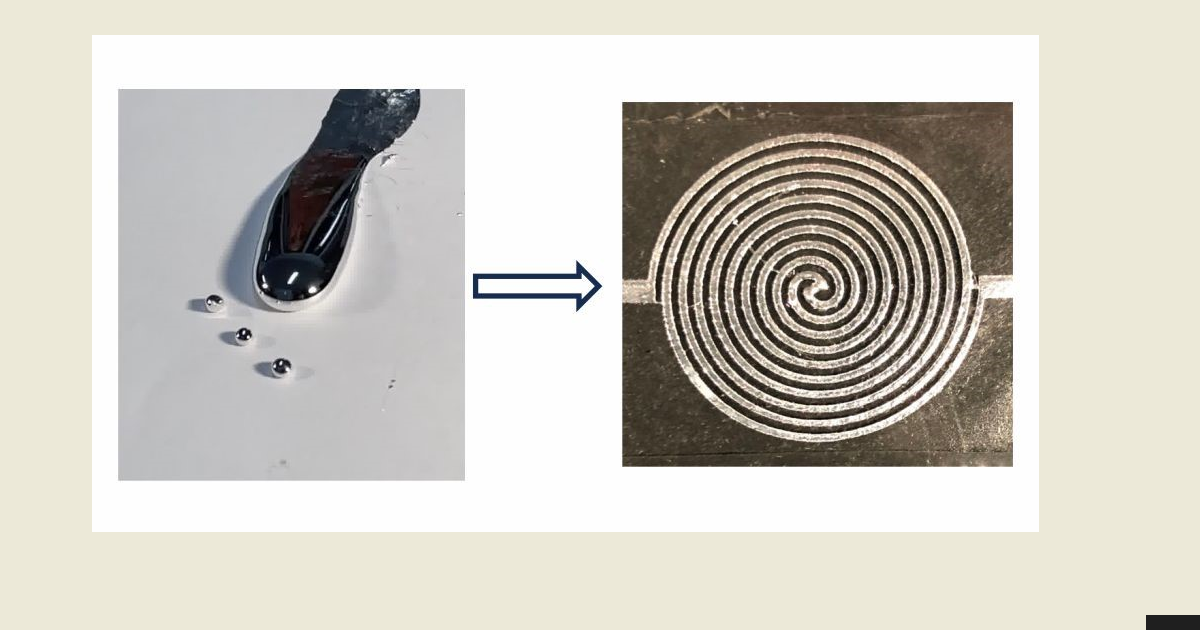- 3.2Impact Factor
- 6.4CiteScore
- 16 daysTime to First Decision
Liquid Metals: From Fundamentals to Applications
This special issue belongs to the section “Metals and Alloys“.
Special Issue Information
Dear Colleagues,
Metal and alloy liquids at or near room temperature have intrigued humankind for centuries. Recently, mercury was phased out in ample applications due to its toxicity and safety concerns. In lieu of mercury, gallium-based liquid metals have garnered renewed attention by the scientific community due to their safety and a combination of advantageous thermophysical properties. Further interesting alloys are based on indium (i.e., Field’s metal) and alkali metals.
In particular, gallium-based alloys have been exploited for various applications, ranging from chemical (micro-)reactors and reaction environments (i.e., for galvanic replacement reactions and generation of thin metal oxides) via drug carriers to flexible electronics and thermal interface materials. The application of these alloys requires a fundamental understanding of liquid metals and their behavior (i.e., wetting, adhesion, alloying/corrosion/reactivity, viscosity, melting temperature and so on). Further, it necessitates detailed knowledge on the means to manipulate its properties and shape/location, i.e., for patterning techniques, and to limit liquid metal corrosion/embrittlement.
Therefore, this Special Issue invites research and review articles presenting fundamental knowledge on liquid metals (i.e., thermophysical properties/corrosion), articles bridging the gap between fundamental knowledge and application/device fabrication, and articles illustrating new or improved fabrication strategies or new applications.
Dr. Stephan Handschuh-Wang
Dr. Ben Wang
Guest Editors
Manuscript Submission Information
Manuscripts should be submitted online at www.mdpi.com by registering and logging in to this website. Once you are registered, click here to go to the submission form. Manuscripts can be submitted until the deadline. All submissions that pass pre-check are peer-reviewed. Accepted papers will be published continuously in the journal (as soon as accepted) and will be listed together on the special issue website. Research articles, review articles as well as short communications are invited. For planned papers, a title and short abstract (about 250 words) can be sent to the Editorial Office for assessment.
Submitted manuscripts should not have been published previously, nor be under consideration for publication elsewhere (except conference proceedings papers). All manuscripts are thoroughly refereed through a single-blind peer-review process. A guide for authors and other relevant information for submission of manuscripts is available on the Instructions for Authors page. Materials is an international peer-reviewed open access semimonthly journal published by MDPI.
Please visit the Instructions for Authors page before submitting a manuscript. The Article Processing Charge (APC) for publication in this open access journal is 2600 CHF (Swiss Francs). Submitted papers should be well formatted and use good English. Authors may use MDPI's English editing service prior to publication or during author revisions.
Keywords
- liquid metals
- gallium
- thermophysical properties
- wetting
- nano liquid metals
- patterning techniques
- liquid metal corrosion
- device fabrication

Benefits of Publishing in a Special Issue
- Ease of navigation: Grouping papers by topic helps scholars navigate broad scope journals more efficiently.
- Greater discoverability: Special Issues support the reach and impact of scientific research. Articles in Special Issues are more discoverable and cited more frequently.
- Expansion of research network: Special Issues facilitate connections among authors, fostering scientific collaborations.
- External promotion: Articles in Special Issues are often promoted through the journal's social media, increasing their visibility.
- e-Book format: Special Issues with more than 10 articles can be published as dedicated e-books, ensuring wide and rapid dissemination.


